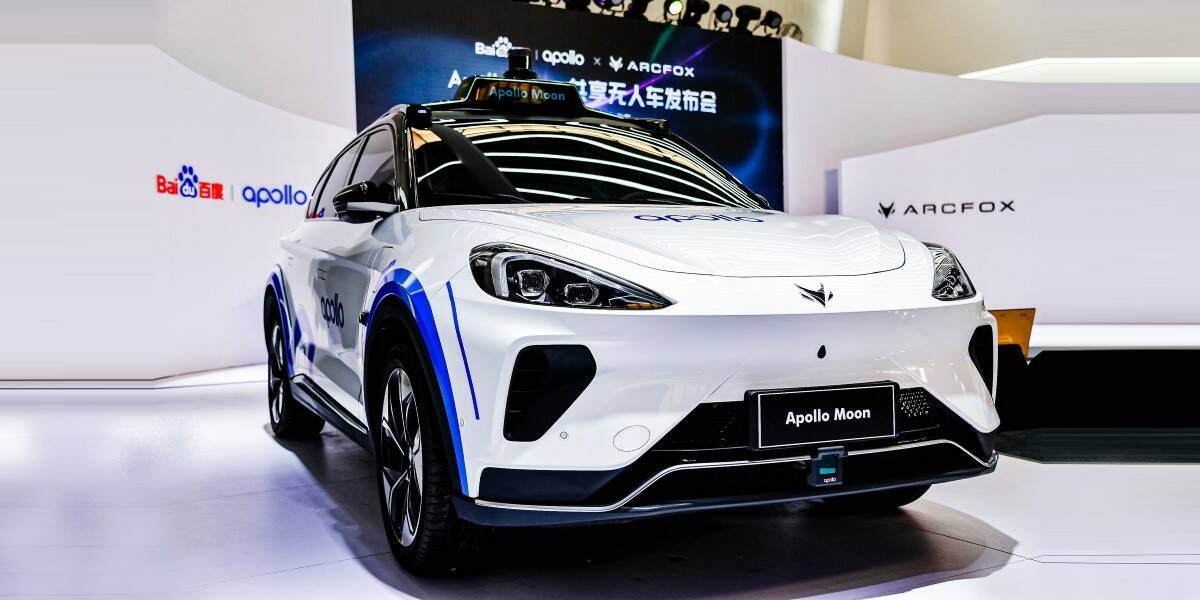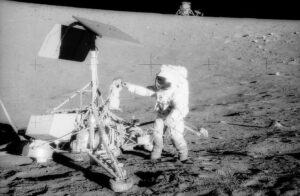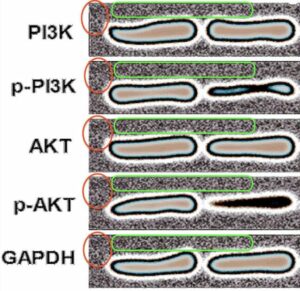
Nvidia has picked up the former head of Baidu’s L2+ Autonomous Driving System, Luo Qi, to head the engineering team of its own automotive business unit.
According to Qi, the PhD-holding engineer led development of China’s first vision-based city Navigation On AutoPilot (NOA) product from its inception while in his last role at Baidu.
Baidu already operates robotaxis in several Chinese cities, with full autonomy allowed in at least three locations. Chinese authorities don’t like to talk about failures, but The Register has heard of no incidents to compare with the sort of robotaxi fails seen in California, where some trials have been ended in ignominious circumstances.
Qi’s position at Nvidia as director of engineering began this month, according to his LinkedIn profile. Reports in Chinese media suggest he will take charge of forecasting, planning and control.
The Register has asked Nvidia for more information and will update this story if anything substantial arises.
Qi is not the first Chinese auto-auto expert to jump to Nvidia: head of automotive, Xinzhou Wu, hails from another Chinese automaker, XPeng. Dozens of XPeng staff reportedly made the same XPeng-to-Nvidia move after Wu.
After he made the move, Wu listed the goals of Nvidia’s automotive segment as being to partner with carmakers and “enable autonomy in mass production vehicles around the world, with AI technologies both in vehicle and in cloud.”
“The future of mass-produced autonomous cars is not far anymore, as what we have observed in China market,” predicted Wu when he transitioned from XPeng to Nvidia six months ago.
While sanctions have muted some technology development in China, the Middle Kingdom has done well with autonomous vehicles.
In January 2023, McKinsey & Company declared China’s automotive industry had entered “an age of unprecedented disruption.”
The consulting firm acknowledged last month that the race to deploy L4 vehicles first is widely seen as between the US and China.
It cited China’s progress as driven by robust government backing, heightened investments in research and data availability, and a receptive consumer attitude.
Meanwhile, US-led efforts from the likes of GM subsidiary Cruise, Google’s self-driving taxi subsidiary Waymo, and Apple’s Project Titan have hit snags. Bloomberg reported this week that Apple has thrown in the towel, although Cupertino hasn’t confirmed that report – and also never actually confirmed it was working on a car.
Nvidia’s autonomous driving unit has a presence in both China and the US, as do XPeng and Baidu.
The AI giant began investing in autonomous driving solutions in 2015. It’s fair to say in the age of generative AI and H100s, it’s not the most hyped product from the California-based GPU-maker.
Q4 2023 results released last week listed the acceleration champ’s yearly automotive business segment as up 21 percent to $1.1 billion – an increase it attributed [PDF] to “growth in self-driving platforms.”
The segment’s quarterly value of $281 million accounts for just over one percent of the quarter’s total $22.1 billion revenue, but execs are hopeful of growth as more cars add more cameras that make them more suitable candidates for Nvidia’s AI-crunching computers. ®
- SEO Powered Content & PR Distribution. Get Amplified Today.
- PlatoData.Network Vertical Generative Ai. Empower Yourself. Access Here.
- PlatoAiStream. Web3 Intelligence. Knowledge Amplified. Access Here.
- PlatoESG. Carbon, CleanTech, Energy, Environment, Solar, Waste Management. Access Here.
- PlatoHealth. Biotech and Clinical Trials Intelligence. Access Here.
- Source: https://go.theregister.com/feed/www.theregister.com/2024/02/28/nvidia_hires_baidu_robocar_expert/
- :has
- :is
- :not
- :where
- $UP
- 1
- 2015
- 2023
- 7
- a
- About
- acceleration
- According
- Accounts
- activity
- actually
- add
- After
- age
- ago
- AI
- allowed
- already
- also
- Although
- an
- and
- Another
- anymore
- anything
- Apple
- ARE
- around
- AS
- At
- attitude
- Authorities
- automotive
- automotive industry
- autonomous
- autonomous cars
- autonomous vehicles
- autonomy
- availability
- backing
- Baidu
- been
- began
- being
- between
- Billion
- Bloomberg
- BOSS
- both
- business
- but
- by
- california
- cameras
- candidates
- car
- cars
- charge
- China
- chinese
- chinese media
- circumstances
- cited
- Cities
- City
- Cloud
- CO
- company
- compare
- computers
- CONFIRMED
- consulting
- consumer
- control
- cruise
- data
- deploy
- Development
- Director
- Disruption
- do
- don
- done
- dozens
- driven
- driving
- efforts
- enable
- ended
- engineer
- Engineering
- entered
- Execs
- expert
- fails
- failures
- fair
- far
- Firm
- First
- For
- Former
- from
- full
- future
- generative
- Generative AI
- giant
- GM
- Goals
- Government
- Growth
- had
- hails
- Have
- he
- head
- heard
- heightened
- his
- hopeful
- HTTPS
- hyped
- if
- in
- inception
- Increase
- industry
- information
- investing
- Investments
- IT
- ITS
- January
- jpg
- jump
- just
- Kingdom
- Last
- least
- Led
- Li
- like
- likes
- LinkedIn profile
- Listed
- locations
- made
- make
- Market
- Mass
- mass-produced
- McKinsey
- McKinsey & Company
- Media
- Middle
- million
- Month
- months
- more
- most
- move
- Navigation
- never
- no
- Nvidia
- of
- on
- ONE
- operates
- over
- own
- partner
- percent
- picked
- planning
- Platforms
- plato
- Plato Data Intelligence
- PlatoData
- position
- presence
- Product
- Production
- Profile
- Progress
- project
- Qi
- Quarter
- quarterly
- Race
- report
- Reported
- reportedly
- Reports
- research
- Results
- revenue
- robotaxi
- robotaxis
- robust
- Role
- s
- same
- Sanctions
- say
- seen
- segment
- self-driving
- several
- SIX
- Six months
- Solutions
- some
- Staff
- Story
- subsidiary
- substantial
- suitable
- system
- Take
- Talk
- team
- Technologies
- Technology
- Technology Development
- that
- The
- The Future
- the world
- Them
- this
- this week
- three
- titan
- to
- Total
- transitioned
- trials
- unit
- unprecedented
- Update
- us
- value
- vehicle
- Vehicles
- was
- waymo
- we
- week
- WELL
- What
- when
- while
- widely
- will
- with
- working
- world
- WSJ
- wu
- yearly
- zephyrnet













